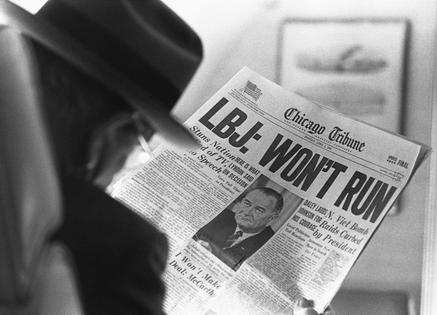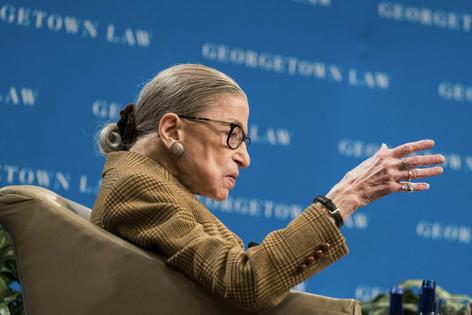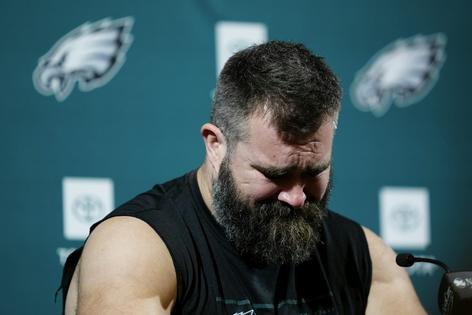Knowing when to call it quits takes courage and confidence - 3 case studies
Published in News & Features
After President Joe Biden’s disastrous performance at the June 27, 2024, debate, many Democrats have raced to ring the alarm bell, proclaiming that it’s time for him to step aside, time to let someone else take the reins in hopes of defeating Donald Trump in November.
With that in mind, as political scientists with a side interest in sports, we recount three moments from history when men and women faced the difficult decision to stay or go. We hope they will help inform the current discussion.
We begin with two who worked at the highest levels of power in the U.S.:
On the final night of March 1968, President Lyndon B. Johnson, known universally as “LBJ,” spoke to the nation from the Oval Office to say that the United States would unilaterally halt nearly all its bombing in North Vietnam.
But as his address came to a close, he had something more to say:
Shocking his audience, LBJ added: “I shall not seek, and I will not accept, the nomination of my party for another term as your president.”
Johnson was 59 years old. Three-and-a-half years earlier, he had scored one of the greatest landslides in American history, winning 61% of the vote and 44 states in the 1964 presidential election.
A scant few individuals so aptly defined the term “political animal” as LBJ. He had come to Washington as a young man bursting with ambition and succeeded like few others.
Indeed, since becoming president after John F. Kennedy’s 1963 assassination, Johnson had ushered through Congress an avalanche of progressive legislation, including the historic 1964 Civil Rights and 1965 Voting Rights acts. With the possible exception of Franklin D. Roosevelt, no other president had achieved so much legislatively.
But on that March day in 1968, at a time of growing antiwar protests and the accelerating pull of rival candidates for the Democratic nomination, he understood that he now led a country coming apart at the seams. Despite having declared his candidacy for reelection, seeking another term might make things worse.
It was time for someone else to have a turn.
As one of us recounts in his book, “A Supreme Court Unlike Any Other: The Deepening Divide Between the Justices and the People,” President Barack Obama invited Justice Ruth Bader Ginsburg for a private lunch at the White House in the summer of 2013.
Obama wanted to nudge Ginsburg into retirement. The 80-year-old justice was a two-time survivor of pancreatic cancer, one of the deadliest of all cancers. She had already served on the high court for two decades and had carved out a legacy as a staunch liberal and champion of women’s equality.
Additionally, Obama was concerned about the upcoming midterm elections. If the Democrats lost the Senate, he would not be able to replace her with a like-minded justice, because a GOP-run Senate would not confirm such a nominee.
Ginsburg didn’t take Obama’s hint.
Soon after the lunch, she noted, “I think one should stay as long as she can do the job.” She added shortly after, “There will be a president after this one, and I’m hopeful that that president will be a fine president.”
That next president was Donald Trump.
Ginsburg died in mid-September 2020, just weeks before Joe Biden would oust Trump from the White House. But significantly, Trump had sufficient time to fill Ginsburg’s seat with the conservative Amy Coney Barrett.
In 2022, Barrett provided the fifth and decisive vote in the Dobbs decision, which overturned Roe v. Wade’s federal protection of abortion rights.
Deciding when to step away or stay may have deep consequences in the political world.
The consequences are big in sports, as well, but at a more personal level.
Skeptics said he was too small to play among the giants on an offensive line in the NFL. Not strong enough. Not tough enough. A former walk-on who had been drafted in 2011 in the sixth round.
But in a short space of time, Jason Kelce redefined the position of center and helped guide his team to its first-ever Super Bowl win.
In 2024, Kelce’s team, the Philadelphia Eagles, was still one of the best in the NFL. It had been to the Super Bowl just a year earlier, and Kelce was still considered to be playing near the top of his game.
But Kelce had had enough. It was time for him to end his playing days.
Sitting before a packed room of reporters and family members, the bare-armed and burly-chested 36-year-old Kelce set out to say goodbye.
But before he could even get a sentence out, his emotions took over, forcing him to pause for several moments. He held his head in his hands, sobbing, sniffling, snorting, taking deep breaths. Tears streamed down his face throughout the news conference. Repeatedly, he had to stop and wipe them away with a washcloth someone tossed to him.
As he struggled to get through his statement, listeners could hear him motivate himself several times with the phrase, “Come on.”
Kelce’s retirement announcement is both difficult and extraordinarily captivating to watch. During those 40 minutes, he displays the courage it takes to call it quits when there is still something to be gained.
The picture was of a man coming to terms with his fate. Not because of injury or lack of skill, but because he believed it was necessary to take this step before those things forced him out.
Are there moments when we can judge for another when it is time to bow out? Most assuredly, there are. Hopefully, we do so with compassion and gratitude, but there are simply times when conscience demands an honest reckoning and unflinching truth-telling.
This article is republished from The Conversation, a nonprofit, independent news organization bringing you facts and analysis to help you make sense of our complex world.
Read more:
Biden crashes, Trump lies: A campaign-defining presidential debate
Ruth Bader Ginsburg helped shape the modern era of women’s rights – even before she went on the Supreme Court
Michael Paris occasionally volunteers with Democratic organizations.
Kevin J. McMahon does not work for, consult, own shares in or receive funding from any company or organization that would benefit from this article, and has disclosed no relevant affiliations beyond their academic appointment.













Comments